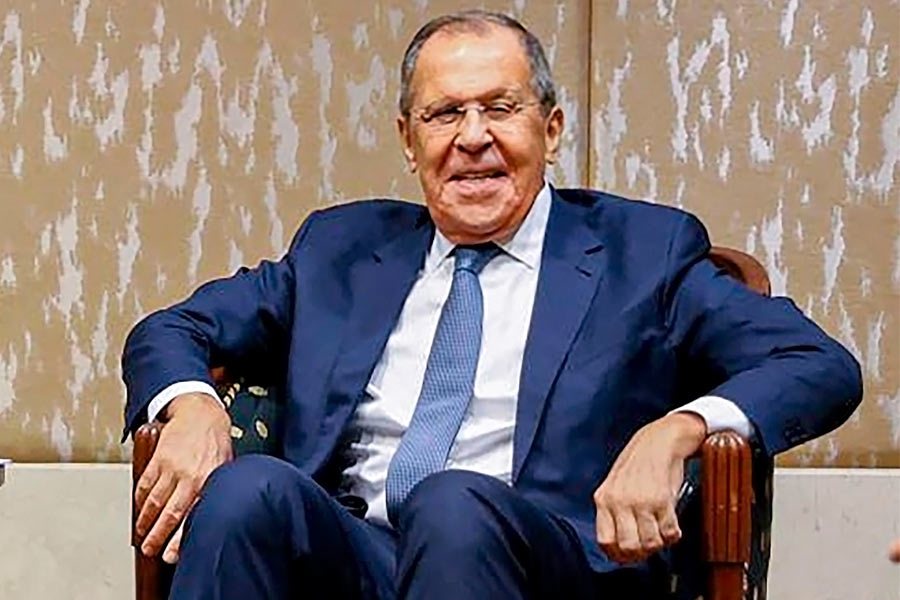Russian foreign minister Sergey Lavrov on Wednesday said Moscow respects India’s aspiration to diversify military and technical links, indicating an acceptance of New Delhi’s growing relationship with the US as fait accompli without specifically saying this in as many words.
Addressing a media conference in Moscow along with external affairs minister S. Jaishankar after their bilateral meeting, Lavrov said Russia-India relations are based on mutual respect and not subject to any political fluctuations. It truly reflects the character of the special privileged partnership. Jaishankar echoed the sentiment by saying: "India-Russia relations remain very steady, remain very strong, they are based on our strategic convergence, on our geopolitical interests, and because they are mutually beneficial."
According to Lavrov, strengthening the strategic cooperation between the two countries corresponds with the national interests of both and also serves the purpose of maintaining security in the Eurasian continent. "We are respectful of the aspirations of our Indian colleagues to diversify their military and technical links. We also understand and we are ready to support their initiative to produce military products as part of the 'Make in India' programme," Lavrov added.
India has over the past two years managed to stare down the pressure from the US and western powers regarding its relations with Russia, particularly with regard to oil purchases from Moscow which the West alleged was bankrolling Russian President Vladimir Putin’s war on Ukraine.
India held on to its long-standing relationship with Moscow and the past two years have seen bilateral trade grow to an "all-time high" in Jaishankar’s words. It had crossed a turnover of $50 billion last year and "we expect to exceed that this year". Further, he pointed out that this trade is more balanced. "It is sustainable and it provides for fair market access."
Much of this is driven by the oil purchases that India made from Russia since the Ukraine war began, taking advantage of the discounted price that Moscow offered countries willing to buy from it in the face of western sanctions. Eager to build on this, Lavrov said: "We agreed on the expansion of the exports of Russian hydrocarbons to the Indian market as well as cooperation in the peaceful use of nuclear energy.”
Stating that the two sides discussed long-term arrangements, Jaishankar said energy, fertilizers and cooking coal were very big components of bilateral trade today.
"We discussed mutual investments, the need to progress on a bilateral investment treaty.... We have agreed that the negotiations between India and the Eurasian Economic Union for a free trade agreement will be resumed in the second half of January this year."











